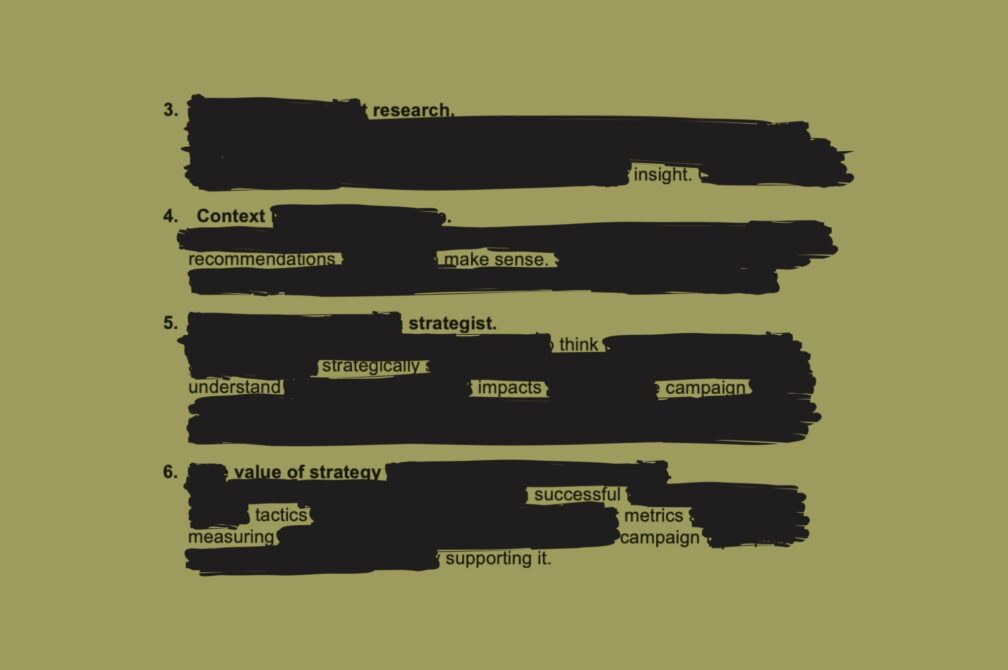Blog

Confessions of a strategist
I don’t know how qualified I am to give confessions of a marketing strategist, and I think that’s the most “strategist” thing I could say. It’s a role that hasn’t been around very long (formally, anyway) and it’s thin on credentials. I can’t even explain how I got here.
But I confess: I do enjoy it. So here are six more confessions of a strategist.
1. My professional title screams “nerd,” and that’s not true.
It actually adds a ton of pressure to say smart things. Or say things smartly? Whatever. The fact is, being a strategist isn’t an indication of intellect. It’s a role. Like a creative director, account supervisor, or a bartender. My role is to dig into the information, understand trends, identify insights, and … oh no. I’m a nerd.
2. I’m the first penguin in the water.
The one that falls in to see if it’s safe? Yeah, that’s me. I jump in before the activation, before the plan, and even before the creative concept to make sure those pieces can survive the task. I come up for air and tell people what I think; all of them stand safely on the ledge, deciding whether or not they trust me. If my idea inspires them, they get right in there with me. If not, I take another deep breath and try again.
3. I’m nothing without research.
I don’t jump in completely blind, by any means. I work with our incredible research team so I have an idea of what I’m getting into. Primary or secondary, I’ll take whatever I can get my hands on. This is where any confidence I have to identify a worthwhile insight comes from. Otherwise, I’m sunk.
4. Context is my love language.
Any idea can be good, bad, great, or terrible in the right context. The more of it I have, the more likely the recommendations are going to make sense. So, gimme all the context—business, consumer, cultural, category—and then we can talk about a second date. (Again: nerd.)
5. Everyone needs to be a strategist.
My title can offend people, triggering them to think that the only strategy that matters comes from me. That ain’t it. Thinking strategically simply means you own the totality of your work beyond a deliverable. You understand why it’s needed, how it impacts the rest of the campaign ecosystem, and where there are opportunities for new thinking that makes that ecosystem better. My deliverable is frequently referred to as a “strategy,” but it needs to be reborn every step of the way by each person who touches it.
6. The value of strategy goes way up when it’s not there.
When a solid strategy sets the stage for a successful brand or campaign, it’s hard to notice. The creative and the tactics are the stars of the show with all their metrics and KPIs and whatever else the kids are measuring these days (vibes, probably). But when a campaign falls apart, it doesn’t take long to realize it was because there was no strategy supporting it.
Strategy is no secret, at least not for a guy like me. But if you’re hungry for my insights or to talk about how strategy can help your brand, reach out today.
Paul Gangarossa
Paul Gangarossa is a marketing strategist who is focused on identifying insights that pave the way for successful campaigns. Contact him at paul_gangarossa@dixonschwabl.com.